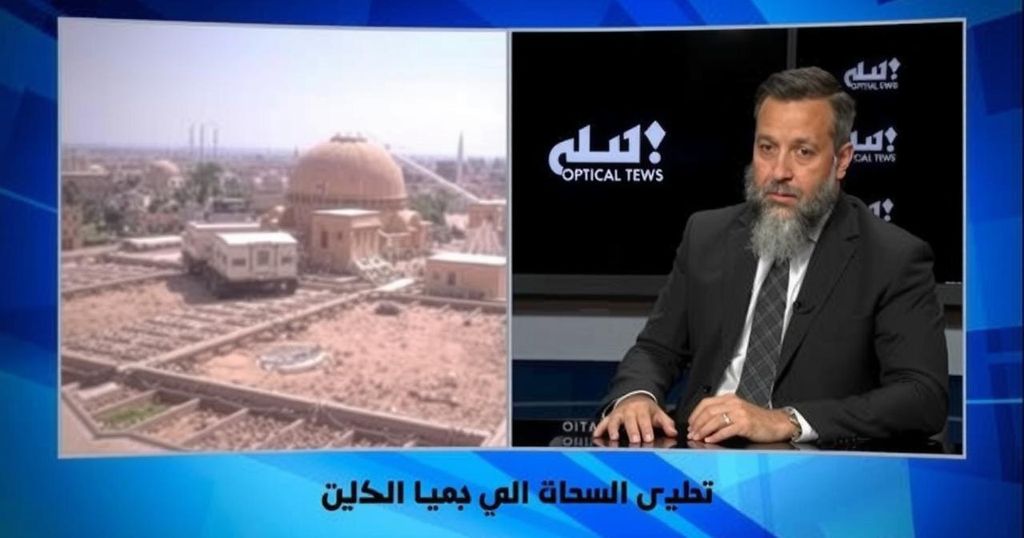Ahmad al-Julani: Israel’s Justifications for Syria Intervention Are Void

Ahmad al-Julani, leader of Hayat Tahrir al-Sham, states in a recent interview that Israel no longer has justifications for intervening in Syria, emphasizing the need for reconstruction and stability. He criticized the Iranian government’s actions and pledges to address poverty in Syria while committing to protect minority groups and eradicate drug production. Al-Julani calls for a transition from revolutionary ideals to governance, highlighting the essential role of the international community in respecting Syria’s sovereignty.
In a significant interview with the opposition TV channel Syria.tv, Ahmad “Abu Mohammad al-Julani” al-Sharaa, the leader of the Syrian rebel group Hayat Tahrir al-Sham (HTS), articulated his vision for Syria’s future. He emphasized that Israel no longer has valid justifications for its interference in Syria, particularly after the withdrawal of Iranian forces. Al-Julani expressed a commitment to prioritize the reconstruction of Syria and maintain stability, urging the international community to respect Syrian sovereignty and refrain from military interventions.
Al-Julani has strongly criticized the Iranian regime for turning Syria into a platform for attacks, which exacerbated the dangers facing the Syrian populace. However, he clarified that the conflict was with the regime’s policies rather than the Iranian people themselves. He asserted, “We were able to end the Iranian presence in Syria, but we do not hold enmity towards the Iranian people. Our problem was with the policies that harmed our country.”
Discussing relationships with other nations, Julani noted that these connections should be reevaluated to better serve mutual interests, despite his acknowledgment of Russia’s role in targeting civilians during the civil war. He emphasized the necessity to transition from a revolutionary mindset to one of governance, stating, “The Syrian revolution has triumphed, but Syria should not be led with the mentality of a revolution.”
Highlighting the dire conditions under the Assad regime, he condemned its systematic deprivation of resources and asserted plans to address poverty and hunger in Syria. Additionally, he addressed the issue of drug production under Assad’s rule, declaring that his administration would eradicate the production of captagon, a drug associated with the narco-state image of Syria.
Furthermore, Al-Julani reiterated his commitment to safeguarding Syria’s minority groups, including Christians and Druze, who opposed Assad. He also signaled a potential alignment of Kurdish forces with the broader Syrian opposition, while confirming that the disarmament and consolidation of armed factions would take place under a newly structured Syrian Defense Ministry.
The context of this interview lies in the ongoing Syrian civil conflict that has lasted over a decade, resulting in significant political and social upheaval. As various factions vie for power and legitimacy, the role of external players such as Israel and Iran has been critical. Ahmad al-Julani’s comments reflect not only a strategic repositioning in response to shifting alliances but also an articulation of a post-conflict vision that stresses stability, reconstruction, and the rule of law in Syria.
In conclusion, Ahmad al-Julani’s interview sheds light on the complex political landscape of Syria and his aspirations for national reconstruction and stability. By distancing his faction from external conflicts and advocating for diplomatic resolutions, he underscores the transformative phase Syria is entering. His commitment to reform, protection of minorities, and addressing socio-economic challenges outlines a new approach to governance amid a fragmented state.
Original Source: www.jpost.com








